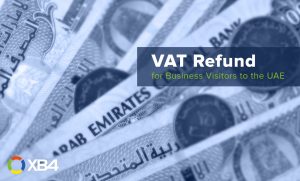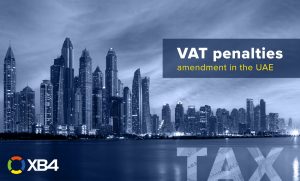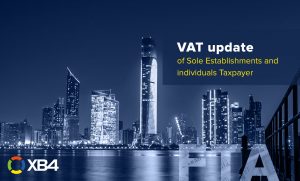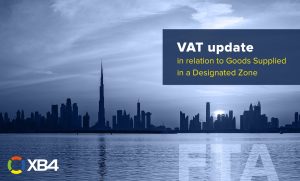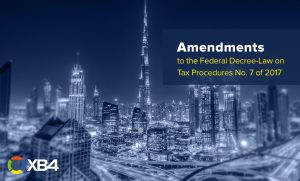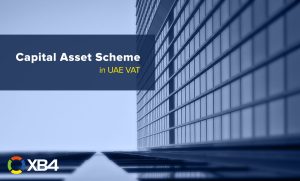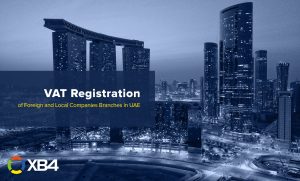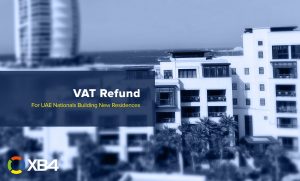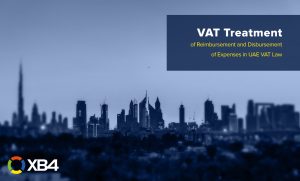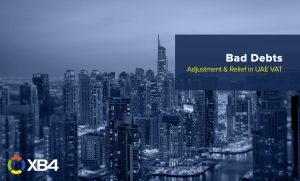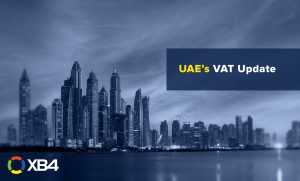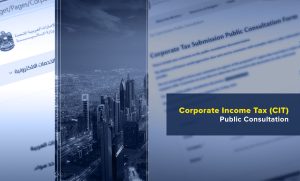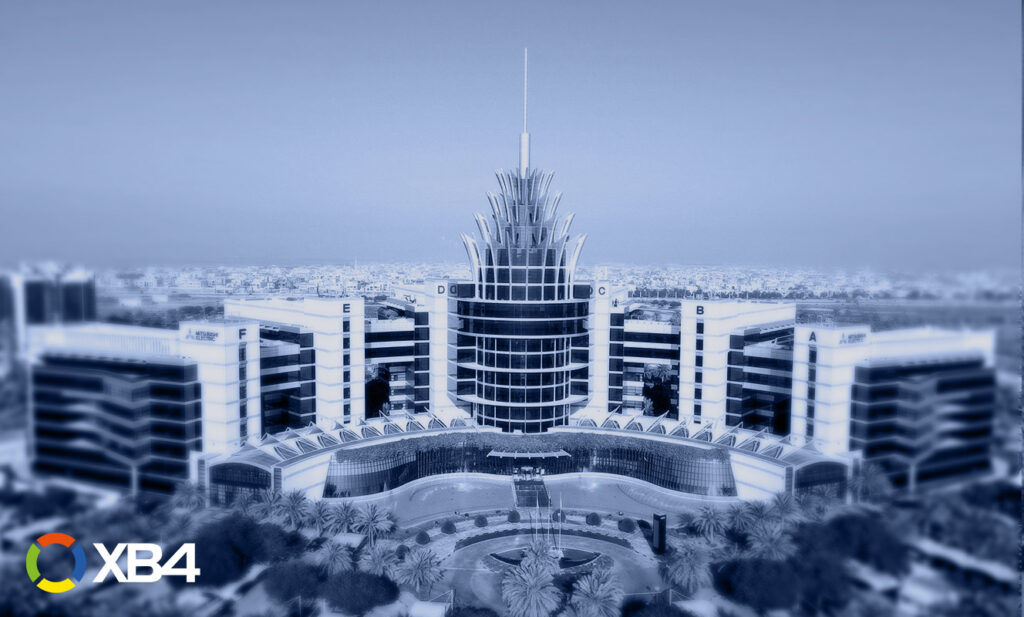
The United Arab Emirates, a nation renowned for its visionary economic policies and unwavering commitment to fostering business growth, has emerged as a global hub for commerce and trade. At the heart of this economic transformation lie the UAE’s free zones – dynamic pockets of economic activity that have lured businesses from around the world with the promise of unprecedented opportunities and incentives.
In the intricate tapestry of UAE’s free zones, one critical aspect that often sparks curiosity and questions is the subject of corporate income tax. As entrepreneurs, investors, and business enthusiasts embark on their entrepreneurial journey in these thriving zones, understanding the nuances of corporate income tax becomes paramount.
This comprehensive guide aims to shed light on the intricate relationship between corporate income tax and the UAE’s free zones. It delves into the fundamental concepts, regulatory frameworks, and exceptional benefits that these zones offer to businesses. It also explores the evolving landscape of corporate taxation in the UAE’s free zones and the strategic considerations that businesses must keep in mind.
The Concept of Free Zones in the UAE
The United Arab Emirates’ free zones stand as gleaming beacons of economic prosperity amidst the vast desert landscapes. These specialized economic zones are carefully designed to facilitate international trade, attract foreign investment, and spur economic diversification. Understanding their core concepts is essential for any business considering the UAE as its base of operations.
Defining Free Zones:
Free zones are geographically demarcated areas within the UAE where businesses can operate with a remarkable degree of autonomy.
These zones offer an array of business incentives, including 100% foreign ownership, full repatriation of profits, and customs duty exemptions.
Objectives of Free Zones:
Free zones are established with specific objectives in mind, such as promoting specific industries (e.g., technology, logistics, media) or driving innovation.
They play a pivotal role in the UAE’s economic diversification strategy, reducing reliance on oil revenues and encouraging non-oil sector growth.
Benefits of Operating in Free Zones:
Perhaps the most attractive aspect of free zones is the tax benefits they offer. In most cases, businesses in free zones are exempt from corporate income tax for a significant number of years.
Businesses in free zones can repatriate 100% of their profits without any restrictions.
Simplified procedures for licensing, permits, and visas make setting up and running a business in these zones remarkably straightforward.
Types of Free Zones:
The UAE boasts a diverse range of free zones catering to various industries and sectors. Examples include Dubai Internet City (DIC) for technology companies, Jebel Ali Free Zone (JAFZA) for logistics and manufacturing, and Twofour54 for media and creative businesses.
Facilities and Infrastructure:
Free zones are equipped with world-class infrastructure, including state-of-the-art office spaces, logistics facilities, and communication networks.
Modern amenities and easy access to transportation hubs make these zones highly desirable for businesses.
Foreign Ownership and Legal Framework:
One of the most appealing features for international investors is the ability to have 100% foreign ownership of their businesses in free zones.
Each free zone operates under its unique set of regulations and authorities, offering businesses considerable flexibility in terms of operations.
Attracting Global Enterprises:
Free zones have successfully attracted global enterprises, making the UAE a regional and international business hub.
Notable multinational companies have established their regional headquarters or operations in these zones, contributing significantly to the UAE’s economic growth. It should be noted that under the UAE’s CT regulations, a free-zone company and business can elect to be taxed in the UAE. This would mean tax savings for such entities who get taxed on their UAE income in their state of residence jurisdictions in accordance with the Organization of Economic Co-operation and Development (OECD) Double Tax Convention, in particular where their state of residence CT rate is more than 9% in comparison with the UAE’s CT rate.
Corporate Income Tax in UAE Free Zones: The Basics:
In the realm of business, taxes are an undeniable reality. However, the United Arab Emirates, including its free zones, has carved a distinctive path when it comes to corporate income tax, making it an enticing destination for businesses worldwide. Let’s delve into the basics of corporate income tax in UAE free zones:
Corporate income tax (CIT) is a tax levied on the profits of businesses. The UAE has a federal CIT system, which means that the same tax rates and rules apply throughout the country.
The CIT rate in the UAE is 9%. However, free zone companies in the UAE are subject to a 0% CIT rate on qualifying income. Qualifying income is income derived from activities that are carried out within a free zone.
There are a few activities that are excluded from qualifying income. These excluded activities include:
- Income derived from immovable commercial property when dealing with non-free zone persons
- Income from non-commercial property when dealing with either free zone persons or non-free zone persons
- Income derived from a domestic or foreign permanent establishment
The de minimis rule allows a free zone company to qualify for the 0% CIT rate even if it derives some income from excluded activities. The de minimis rule applies if the income derived from excluded activities does not exceed 5% of the company’s total income.
Tax Exemptions – A Fundamental Attraction:
The cornerstone of corporate income tax in UAE free zones is exemption. In most UAE free zones, businesses enjoy a substantial period of full exemption from corporate income tax, which often extends for 15 to 50 years.
This means that businesses established in these zones can conduct their operations, generate revenue, and accrue profits without being subject to corporate income tax during the exemption period.
Tax Exemption Periods:
While the general concept of tax exemption prevails in most free zones, the specific exemption period can vary from one zone to another.
For instance, free zones in Dubai, such as Dubai Multi Commodities Centre (DMCC) and Dubai Internet City (DIC), typically offer a 15-year tax exemption. In contrast, free zones like Jebel Ali Free Zone (JAFZA) extend this exemption to 50 years.
Strategic Considerations:
The extensive tax exemptions available in UAE-free zones are a compelling advantage for businesses. However, it’s essential to approach this benefit strategically.
Businesses must consider their long-term plans beyond the exemption period. Understanding the tax implications once the exemption ends is crucial for effective financial planning.
Exemptions for Specific Industries:
Some free zones are designed to promote specific industries or sectors, and they may offer tailored tax incentives.
For example, the Abu Dhabi Global Market (ADGM) focuses on financial services and offers a tax exemption for a specified period, with tailored regulations catering to financial institutions.
Free Zones vs. Mainland UAE:
It’s important to note that the tax regime within free zones differs from that in the UAE’s mainland.
Businesses operating outside free zones on the UAE mainland may be subject to corporate income tax, but they can also benefit from the UAE’s network of double taxation avoidance treaties.
Understanding the basics of corporate income tax in UAE free zones provides businesses with a solid foundation for navigating the tax landscape within these dynamic economic zones. It’s a testament to the UAE’s commitment to fostering business growth, attracting foreign investment, and promoting economic diversification.
Understanding Profit Repatriation and Dividends in Free Zones:
In the world of business, one of the most critical aspects is how profits are treated and distributed. In UAE free zones, the principles governing profit repatriation and dividends differ from what you might encounter in other international jurisdictions. Here, we unravel the intricacies:
Profit Repatriation:
In UAE free zones, businesses typically enjoy considerable flexibility when it comes to profit repatriation.
The tax exemptions that these zones provide often extend to the repatriation of profits. This means that businesses can transfer their earnings abroad without being subject to corporate income tax, allowing for efficient capital management.
Dividend Distribution:
UAE free zones typically do not impose any taxes on dividend distributions. When a business decides to distribute profits to its shareholders, it can do so without the burden of dividend tax.
The Strategic Advantage:
The absence of corporate income tax on profit repatriation and dividends is a strategic advantage that businesses can leverage.
This advantage not only facilitates the efficient allocation of capital but also enhances the attractiveness of UAE free zones for investors and entrepreneurs seeking to maximize returns.
Beyond Exemption Periods:
While profit repatriation and dividend distribution are tax-efficient during the tax exemption period, businesses must also consider their tax implications after the exemption period concludes.
Understanding the potential corporate income tax liabilities post-exemption is crucial for long-term financial planning.
Leveraging International Tax Treaties:
The UAE boasts an extensive network of double taxation avoidance treaties with numerous countries.
These treaties can be instrumental in minimizing tax liabilities when repatriating profits to foreign jurisdictions. They provide a framework for businesses to avoid being taxed on the same income in multiple countries.
Tailoring Strategies:
Businesses operating in UAE-free zones have the flexibility to tailor their profit repatriation and dividend distribution strategies according to their specific circumstances.
Expert advice and careful financial planning can help businesses make informed decisions that optimize their tax position while ensuring compliance with local regulations.
Understanding the treatment of profit repatriation and dividends in UAE-free zones is essential for businesses that aim to make the most of the tax-efficient environment. As we continue our exploration of corporate income tax in these dynamic economic zones, we will delve into the significance of tax treaties and agreements in shaping taxation policies within free zones, providing businesses with valuable insights into international tax planning.
Tax Treaties and Agreements:
The United Arab Emirates, recognizing the importance of fostering international business relationships and trade, has established an extensive network of double taxation avoidance treaties, often referred to as tax treaties. These treaties play a pivotal role in shaping the taxation landscape within the UAE’s free zones and hold significant implications for businesses operating within them. Here’s a closer look:
Double Taxation Avoidance Treaties – A Global Network:
The UAE has entered into tax treaties with numerous countries worldwide, spanning regions from Europe to Asia and beyond.
These treaties are designed to prevent the double taxation of income by allocating taxing rights between the contracting states.
Impact on Corporate Income Tax in Free Zones:
Tax treaties significantly influence the taxation of corporate income within UAE free zones, particularly for businesses with cross-border operations.
These treaties can reduce or eliminate withholding taxes on dividends, interest, and royalties, depending on the terms of the specific treaty.
Key Provisions of Tax Treaties:
Tax treaties typically include provisions related to:
- Permanent Establishment: Determining when a business presence in one country constitutes a permanent establishment, thus subjecting it to taxation in that country.
- Withholding Taxes: Specifying the maximum rates of withholding tax applicable to various types of income, such as dividends, interest, and royalties.
- Capital Gains: Addressing the taxation of capital gains arising from the sale of certain assets, including shares in companies.
- Exchange of Information: Facilitating the exchange of tax-related information between treaty partners, supporting transparency and compliance.
Optimizing Taxation through Treaties:
Businesses can leverage tax treaties to minimize their tax liabilities when repatriating profits or engaging in cross-border transactions.
By understanding the provisions of relevant tax treaties and seeking expert advice, businesses can create tax-efficient structures that align with international tax standards.
Maintaining Compliance:
While tax treaties offer opportunities for tax optimization, it’s essential for businesses to maintain compliance with the treaty terms and relevant local regulations.
Staying informed about changes in treaty provisions and evolving tax laws is critical for businesses with international operations.
Strategic International Tax Planning:
Tax treaties provide the framework for strategic international tax planning, enabling businesses to expand globally while minimizing tax risks.
Careful consideration of the treaty network can support businesses in making informed decisions about cross-border activities.
Understanding the role of tax treaties and agreements within the UAE’s free zones is essential for businesses engaged in international trade and investment. These treaties can be valuable tools for optimizing the tax position of businesses operating within the UAE, offering opportunities to minimize tax burdens and enhance the attractiveness of UAE-free zones for global enterprises.
Regulatory Changes and Future Outlook:
The landscape of corporate income tax within the United Arab Emirates’ free zones is not static; it evolves in response to global economic dynamics and international tax standards. To navigate this dynamic environment effectively, it’s essential for businesses to remain attuned to regulatory changes and maintain a forward-looking perspective. Here, we explore the regulatory changes and offer insights into the future outlook of corporate income tax in UAE free zones:
Commitment to International Standards:
The UAE has consistently demonstrated its commitment to adhering to international tax standards and best practices.
Initiatives such as the Base Erosion and Profit Shifting (BEPS) framework and Common Reporting Standard (CRS) have influenced the UAE’s approach to taxation.
Regulatory Changes and Updates:
Regulatory changes related to corporate income tax in free zones can occur in response to global developments or specific economic objectives.
Businesses must stay informed about any amendments to tax laws, free zone regulations, or international agreements that may affect their tax position.
The Role of Economic Substance Regulations:
In recent years, the UAE has introduced Economic Substance Regulations (ESR) to align with international standards and ensure that entities in the UAE-free zones have substantial activities.
ESR requires entities engaged in specific activities to maintain a substantial presence and conduct core income-generating activities within the UAE.
The Evolution of Tax Policies:
As the UAE continues its journey towards economic diversification, the evolution of tax policies within free zones may become more nuanced.
Businesses should anticipate potential adjustments in tax regulations and explore how these changes may impact their operations.
The Future of Corporate Income Tax in Free Zones:
While the UAE’s commitment to tax exemptions in free zones remains strong, businesses should be prepared for the possibility of evolving tax policies.
It’s advisable to engage in proactive tax planning and consider the implications of corporate income tax after the tax exemption period concludes.
The Role of Expert Guidance:
Navigating the ever-changing landscape of corporate income tax in UAE-free zones can be complex.
Engaging tax experts and advisors who are well-versed in UAE tax regulations and international tax standards is a prudent step for businesses.
Attractiveness of UAE Free Zones:
Despite potential regulatory changes, UAE-free zones will likely continue to offer an attractive environment for businesses.
The UAE’s strategic location, world-class infrastructure, and business-friendly policies remain significant advantages.
Expert Insights and Considerations for Businesses:
Navigating the corporate income tax landscape within UAE free zones requires a blend of strategic thinking, compliance, and adaptability. Here, we provide expert insights and considerations for businesses looking to make the most of the tax-efficient environment while ensuring long-term financial sustainability:
Engage Tax Experts:
Tax regulations and international standards can be complex and subject to change. Engaging experienced tax experts and advisors like XB4 who are familiar with UAE tax laws and international treaties is essential.
We at XB4 can help businesses optimize their tax position, navigate regulatory changes, and plan for the post-exemption period.
Long-term Financial Planning:
While the tax exemptions in UAE-free zones are advantageous, businesses should not solely rely on them. Smart financial planning should encompass both the exemption period and the period afterwards.
Consider how your business will manage tax obligations once the exemption period concludes. This may involve restructuring, repatriation strategies, or exploring new opportunities.
Leverage Tax Treaties:
The UAE’s extensive network of double taxation avoidance treaties offers opportunities for businesses to minimize tax liabilities on cross-border activities.
Understand the provisions of relevant treaties and how they apply to your business operations. Seek expert guidance on optimizing treaty benefits.
Diversify and Innovate:
UAE free zones encourage businesses to innovate and diversify. During the exemption period, consider reinvesting profits into growth, research, and development.
Explore opportunities to expand into adjacent sectors or international markets, capitalizing on the tax-efficient environment to fuel expansion.
Stay Informed and Compliant:
Regulatory changes can impact corporate income tax in free zones. Stay informed about developments in tax laws and free zone regulations.
Ensure your business remains compliant with local laws, including any economic substance requirements, to avoid potential penalties.
Plan for Succession and Exit:
Businesses should have a clear plan for succession and exit strategies. This includes considerations for transferring ownership, selling the business, or passing it on to the next generation.
Tax implications during such transitions should be carefully evaluated.
Conclusion
Our exploration of corporate income tax within the United Arab Emirates’ free zones has illuminated the remarkable advantages and unique considerations that businesses encounter in this dynamic economic landscape. In summary, several key takeaways emerge:
The Promise of Tax Exemptions:
UAE free zones offer substantial corporate income tax exemptions, often extending for 15 to 50 years. This benefit empowers businesses to operate and grow without the immediate burden of corporate taxation.
Strategic Financial Planning is Crucial:
While tax exemptions are a major attraction, businesses must engage in strategic financial planning that considers both the exemption period and the post-exemption phase.
Expert guidance and compliance are essential for long-term financial sustainability.
Leveraging Tax Treaties:
The UAE’s extensive network of double taxation avoidance treaties presents opportunities for businesses to minimize tax liabilities on cross-border activities.
Understanding and optimizing treaty benefits can be instrumental in international tax planning.
Evolving Landscape and Compliance:
The regulatory environment in UAE free zones is not static. Regulatory changes and global standards may influence tax policies.
Staying informed and compliant is crucial to navigate the dynamic tax landscape.
Diversification and Innovation:
Free zones encourage businesses to innovate, diversify, and expand. Reinvesting profits into growth and exploring new opportunities can be strategically advantageous.
Expert Guidance Matters:
Engaging tax experts and advisors who are well-versed in UAE tax laws and international standards is prudent for businesses seeking to optimize their tax position.
A Bright Future Awaits:
The UAE’s free zones remain highly attractive for businesses, offering a strategic location, world-class infrastructure, and business-friendly policies.
With thoughtful planning and adaptability, businesses can establish a thriving presence within these zones.
In a world where the right financial decisions can shape the trajectory of businesses, understanding the intricacies of corporate income tax within UAE free zones is a valuable asset. It empowers businesses to seize opportunities, navigate challenges, and embark on a journey of sustainable growth and success in this dynamic and tax-efficient economic ecosystem. As we conclude our exploration, we encourage businesses to embrace the knowledge gained and embark on their path to prosperity within the UAE’s vibrant free zones.

















